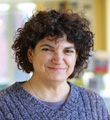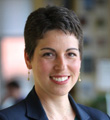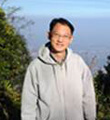Ten Questions to Ask About Scaling On-grid Renewable Energy: Designing Stable Policy through Improved Stakeholder Engagement
20 May 2014
<!–
View Webinar Content
Presentation—Introduction to the webinar and panelists
See Also
10 Questions to Ask About Integrated Resources Planning and Electricity Tariffs
20 May 2014
3:00 p.m. CEST | 9:00 a.m. EDT
Check your local time.
Reserve your seat now.
–>
The Clean Energy Solutions Center, in partnership with the World Resources Institute, hosted this webinar-based training on resolving the challenges related to scaling up grid-connected renewable energy.
Deploying renewable energy on an economy-wide scale requires solutions to a range of short-, medium- and long-term challenges. These include resolving economic questions about how the costs of new renewable energy generation will be distributed among electricity consumers, investors, taxpayers and other stakeholders, and technological challenges such as accommodating intermittent supply, upgrading or adding transmission and distribution grids, and addressing knowledge gaps.
“Ten Questions to Ask About Scaling On-Grid Renewable Energy” provides a framework to help stakeholders—including decision-makers, investors, civil society, and others—engage with each other to resolve challenges related to scaling up grid-connected renewable energy in their country or region. The questions can be used to identify crucial gaps and challenges in the scale-up process; query decision makers on plans to fill those gaps; and help ensure that electricity policies represent public interests by keeping social, economic and environmental considerations in mind.
The webinar consisted of three presentations:
- Davida Wood (WRI) provided an overview of the 10 Questions framework.
- Letha Tawney (WRI) focused on how the questions can be used to create stable policy to increase investor confidence. In particular, she addressed issues around pricing and subsidy transparency, planning for adaptive changes in financial support for renewable energy, and understanding and mitigating the fiscal and technical challenges that can emerge as renewables scale up.
- Suphakit Nuntavorakarn (Healthy Public Policy Foundation) share the challenges that Thailand has faced in reaching its target of 25% total energy consumption of renewable energy by 2021, and how the 10 Questions framework has catalyzed the ongoing Solar PV Roadmap Initiative as a process for solving them.
Panelists
 Davida Wood, Project Manager, Electricity Governance Initiative, World Resources Institute
Davida Wood, Project Manager, Electricity Governance Initiative, World Resources Institute
Davida Wood is a Project Manager with the Electricity Governance Initiative at the World Resources Institute. Prior to joining WRI, Davida was with USAID’s Office of Infrastructure and Engineering, where she developed and managed a portfolio of projects at the nexus of democratization and energy sector governance. This suite of projects focused on improving transparency, accountability and public participation in energy sector institutions as well as building the capacity of civil society to effectively participate in sector decision making processes. Originally from South Africa, her interest in environmental governance stems from work with a network of civil society organizations participating in the development of natural resource legislation to meet the needs of the new South Africa.
Davida has a PhD in Political Anthropology from Princeton University.
 Letha Tawney, Senior Associate, Markets and Enterprise Program, World Resources Institute
Letha Tawney, Senior Associate, Markets and Enterprise Program, World Resources Institute
Presentation
Letha Tawney is a Senior Associate in the World Resources Institute’s Markets and Enterprise Program. She leads the Charge strategy in the United States and supports global Charge strategy. In the U.S., Letha collaborates with utilities, regulators, technology suppliers and customers to develop innovative utility business models that support and incentivize a transition from the fossil energy dominated electricity systems of today to a more responsive, resilient and cleaner renewable energy dominated power grid of tomorrow. Previously, Letha led research on renewable energy technology policy, including subsidy reform and best practices to accelerate innovation and build competitive domestic industries. Letha has also engaged in the international climate negotiations to improve the financing and delivery of energy technologies to developing countries. With over ten years of experience in information technology prior to coming to clean energy, Letha deeply understands manufacturers’ efforts to innovate for a competitive edge while reducing costs. Letha holds a Master’s of Public Administration from the Harvard Kennedy School and a Bachelor’s in Business and Computer Science from George Fox University. She has written and co-authored many publications on accelerating innovation in renewable energy technology and reaping the economic benefits of the emerging industries.
 Suphakit Nuntavorakarn, Public Policy Manager, Healthy Public Policy Foundation, Thailand
Suphakit Nuntavorakarn, Public Policy Manager, Healthy Public Policy Foundation, Thailand
Presentation
Suphakit has been working on various aspects of renewable energy policy in Thailand since 2002. He and his colleague analyze alternative Power Development Plan to challenge and influence each formal Power Development Plan of the government for more renewable energy and energy efficiency. He has been working with around 80 communities on renewable energy at household and community level and HPPF is now leading and support the network of 18 social enterprises on renewable energy. He has conducted and supported a number of studies on environmental and social impacts of biomass power plant projects and he was instrumental in the decision process of the Ministerial Cabinet to systematically address and prevent the impacts from biomass power plant.
 Sarah Martin, Research Analyst, World Resources Institute
Sarah Martin, Research Analyst, World Resources Institute
Presentation
Sarah is a Research Analyst with the Electricity Governance Initiative (EGI). EGI works with civil society organizations and policymakers in developing countries to promote transparency, accountability and public participation in the electricity sector. Within EGI, Sarah is involved in projects focused on renewable energy, energy efficiency and holistic energy planning. Prior to joining WRI, Sarah worked with Toronto based Ontario Sustainable Energy Association and York University’s Sustainable Energy Initiative to help move forward Ontario’s Green Energy Act. She has also worked with the World Wind Energy Association in Bonn, Germany promoting sustainable energy development and providing research to support the Association’s “Community Energy” strategy. Sarah holds a B.A. in International Studies from Glendon College, York University in Toronto, and she received an International Diploma from Sciences-Po, Paris. She also holds a Masters in Environmental Studies from York University, Toronto.
